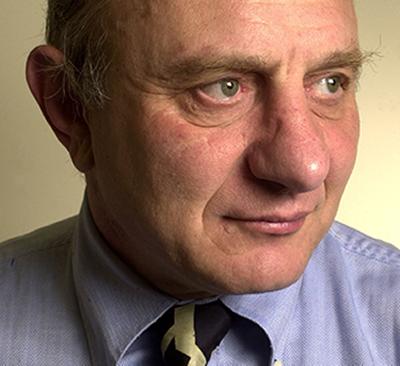97 per cent of UK doctors have given placebos to patients

Researchers at the Universities of Oxford and Southampton discovered that 97 per cent of doctors have used ‘impure’ placebo treatments, while 12 per cent have used ‘pure’ placebos.
‘Impure’ placebos are treatments that are unproven, such as antibiotics for suspected viral infections, or more commonly non-essential physical examinations and blood tests performed to reassure patients. ‘Pure’ placebos are treatments, such as sugar pills or saline injections, which contain no active ingredients.
A random sample of doctors was surveyed online, and returned 783 responses. This sample was found to be representative of all doctors registered with the General Medical Council (GMC). The research was funded by the National Institute for Health Research, the University of Oxford Department of Primary Health Care Sciences and The Southampton Complementary Medical Research Trust. The results are published in the open-access journal PLOS ONE.
“This is not about doctors deceiving patients,” says Dr Jeremy Howick, co-lead author of the study from the University of Oxford, “The study shows that placebo use is widespread in the UK, and doctors clearly believe that placebos can help patients.”
The survey showed that doctors prescribing both pure and impure placebos reported doing so for broadly similar reasons. Placebos were mainly given to either induce psychological treatment effects, because patients requested treatment or to reassure patients.
Ethical attitudes towards placebo usage varied among doctors, with 66 per cent saying that pure placebos are ethically acceptable under certain circumstances and 33 per cent saying they are never acceptable. Impure placebos were more widely accepted, with 84 per cent of doctors deeming them acceptable.
This widespread use and acceptance of placebos is consistent with similar studies worldwide, yet they are still against General Medical Council ethical codes. “Current ethical rulings on placebos ought to be revisited in light of the strong evidence suggesting that doctors broadly support their use,” says Dr Howick.
For both pure and impure placebos, over 90 per cent of doctors objected to their use where it endangered patient/doctor trust and over 80 per cent were against using them if it involved deception.
“This latest study with the University of Oxford demonstrates that doctors are generally using placebos in good faith to help patients,” says Professor George Lewith, co-lead author of the study from the University of Southampton. “Other previous published studies by Southampton have clearly shown placebos can help many people and can be effective for a long time after administration. The placebo effect works by releasing our body's own natural painkillers into our nervous system. In my opinion the stigma attached to placebo use is irrational, and further investigation is needed to develop ethical, cost-effective placebos.”
Notes for editors
The full results of the survey are available in the paper.
The University of Oxford's Medical Sciences Division is one of the largest biomedical research centres in Europe, with over 2,500 people involved in research and more than 2,800 students. The University is rated the best in the world for medicine, and it is home to the UK's top-ranked medical school.
From the genetic and molecular basis of disease to the latest advances in neuroscience, Oxford is at the forefront of medical research. It has one of the largest clinical trial portfolios in the UK and great expertise in taking discoveries from the lab into the clinic. Partnerships with the local NHS Trusts enable patients to benefit from close links between medical research and healthcare delivery.
A great strength of Oxford medicine is its long-standing network of clinical research units in Asia and Africa, enabling world-leading research on the most pressing global health challenges such as malaria, TB, HIV/AIDS and flu. Oxford is also renowned for its large-scale studies which examine the role of factors such as smoking, alcohol and diet on cancer, heart disease and other conditions.
The University of Southampton is a leading UK teaching and research institution with a global reputation for leading-edge research and scholarship across a wide range of subjects in engineering, science, social sciences, health and humanities.
With over 23,000 students, around 5000 staff, and an annual turnover well in excess of £435 million, the University of Southampton is acknowledged as one of the country's top institutions for engineering, computer science and medicine. We combine academic excellence with an innovative and entrepreneurial approach to research, supporting a culture that engages and challenges students and staff in their pursuit of learning.
The University is also home to a number of world-leading research centres including the Institute of Sound and Vibration Research, the Optoelectronics Research Centre, the Web Science Trust and Doctoral training Centre, the Centre for the Developmental Origins of Health and Disease, the Southampton Statistical Sciences Research Institute and is a partner of the National Oceanography Centre at the Southampton waterfront campus.
The National Institute for Health Research (NIHR) is funded by the Department of Health to improve the health and wealth of the nation through research. Since its establishment in April 2006, the NIHR has transformed research in the NHS. It has increased the volume of applied health research for the benefit of patients and the public, driven faster translation of basic science discoveries into tangible benefits for patients and the economy, and developed and supported the people who conduct and contribute to applied health research.
The NIHR plays a key role in the Government’s strategy for economic growth, attracting investment by the life-sciences industries through its world-class infrastructure for health research. Together, the NIHR people, programmes, centres of excellence and systems represent the most integrated health research system in the world. For further information, visit the NIHR website (www.nihr.ac.uk).
For more information:
Dr Jeremy Howick at jeremy.howick@phc.ox.ac.uk or on +44 (0)1865 289 258
University of Oxford press office on +44 (0)1865 280533
To contract Professor George Lewith call Becky Attwood, Media Relations Officer, University of Southampton, Tel: 023 8059 5457 or email: R.Attwood@southampton.ac.uk